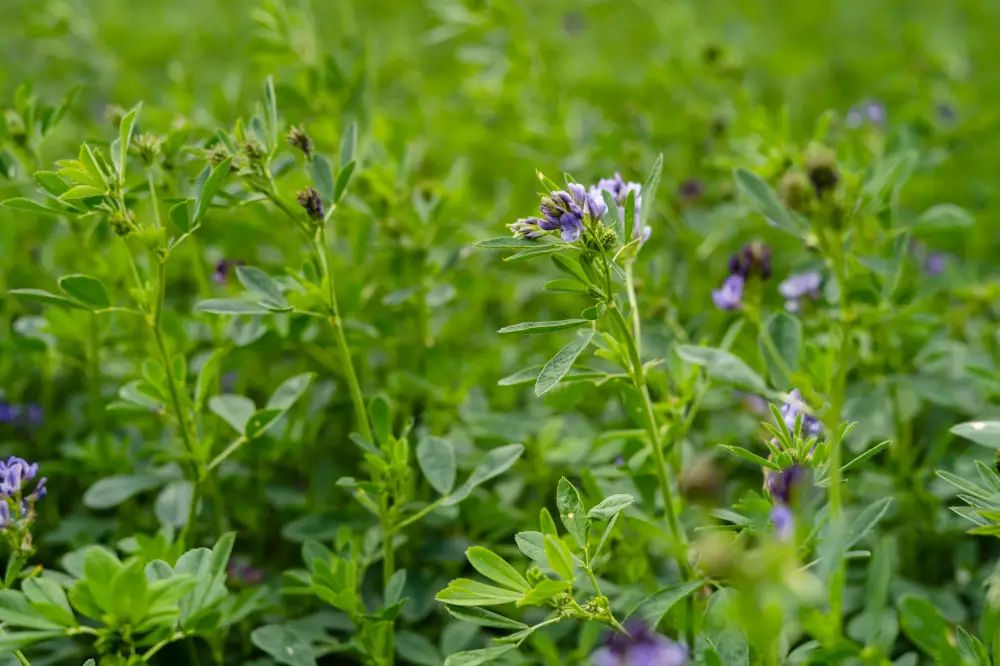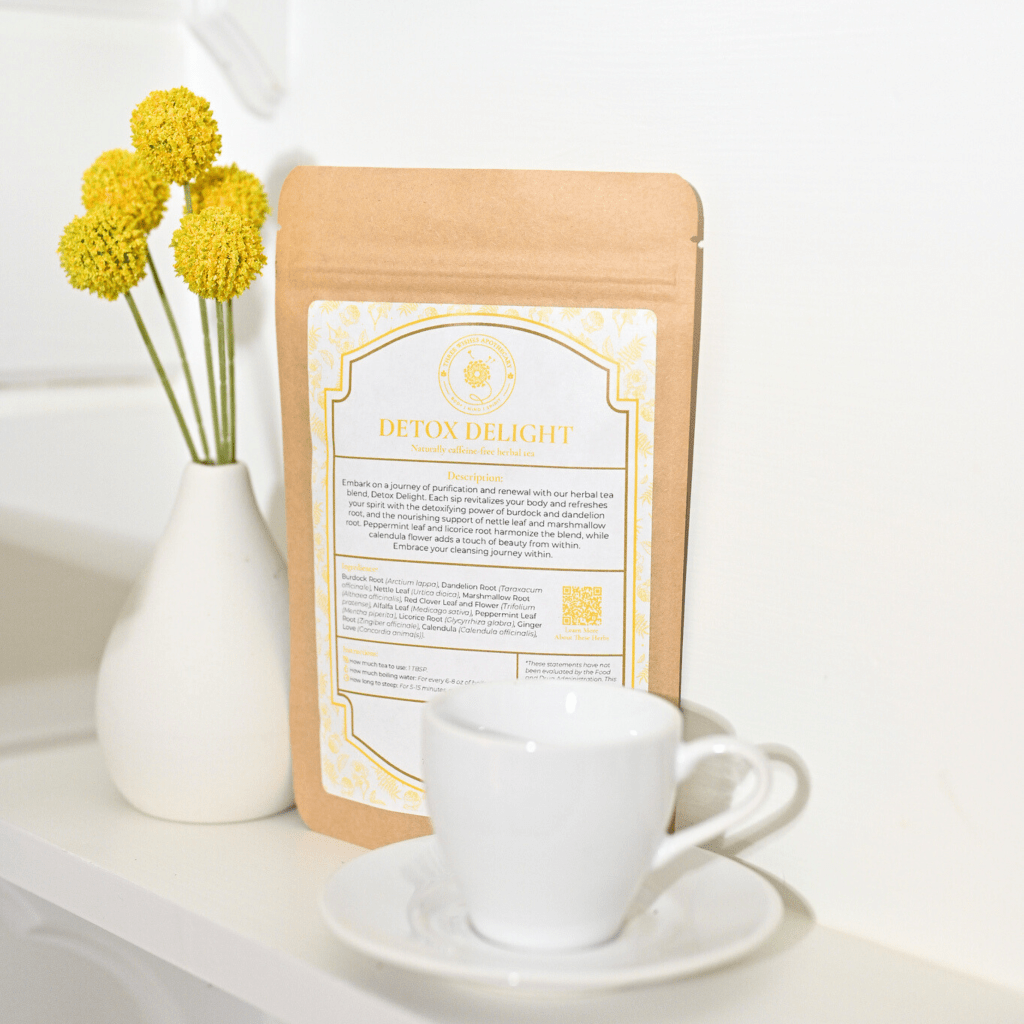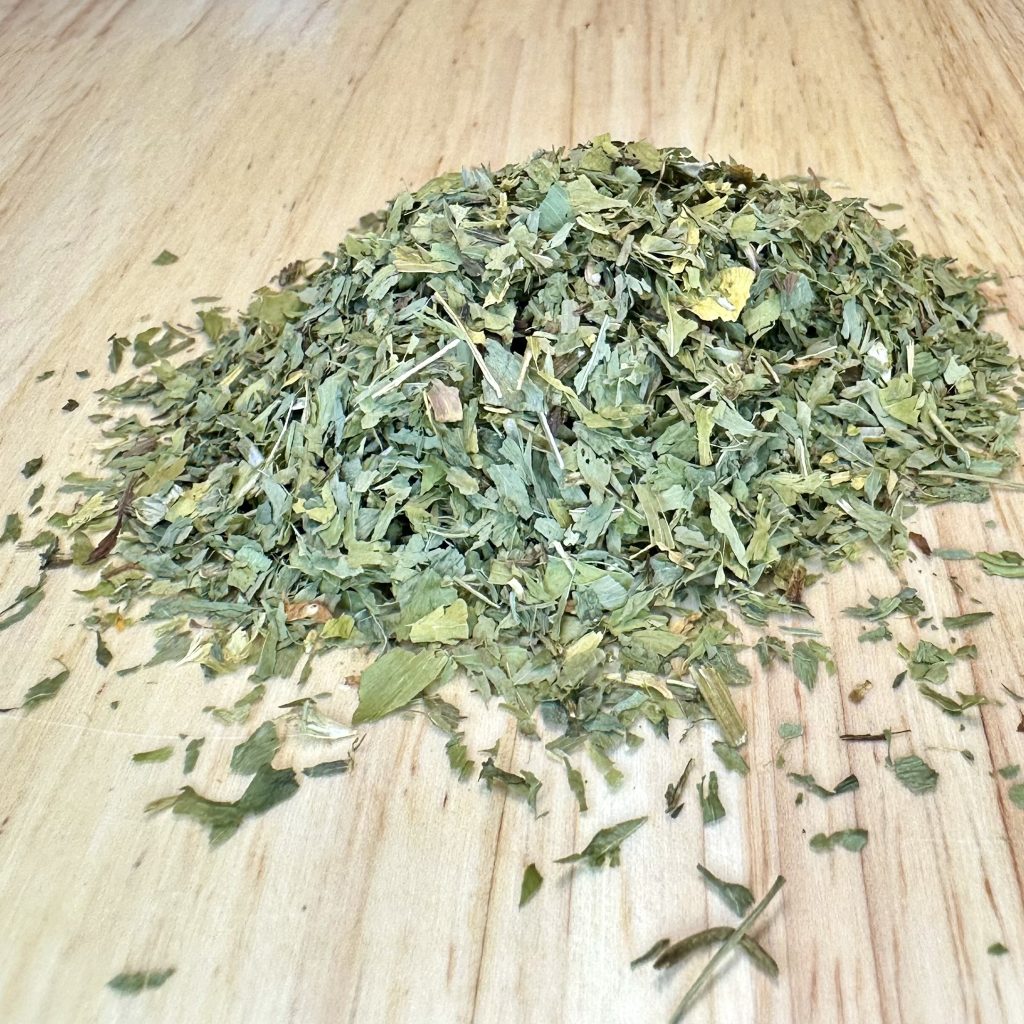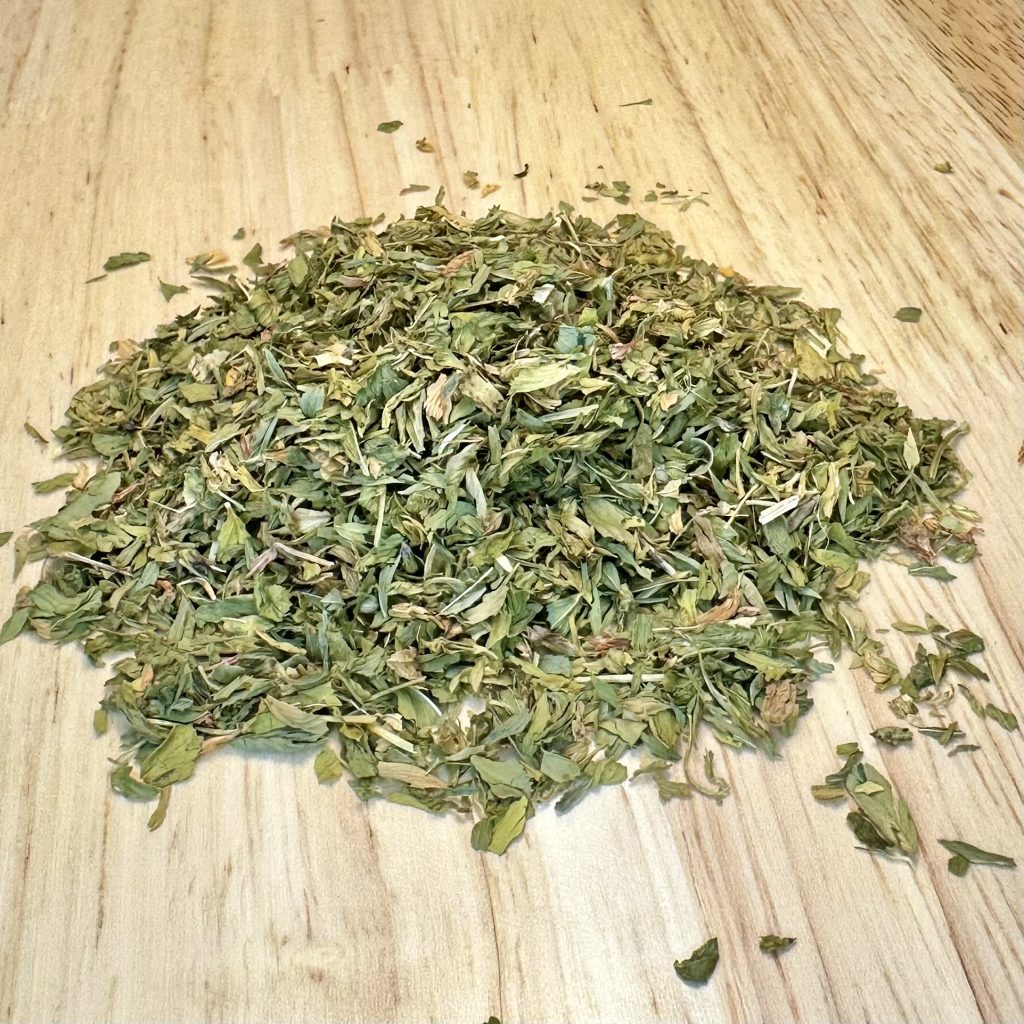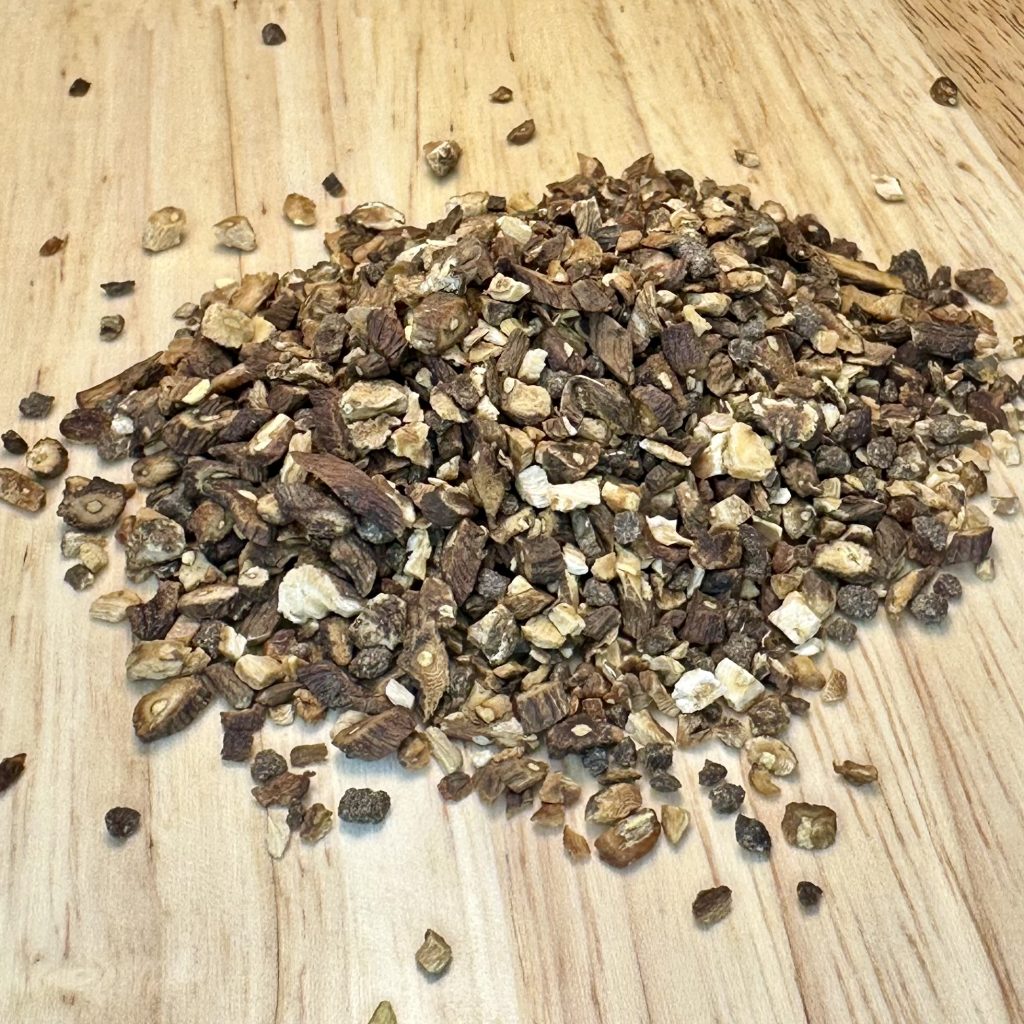Medicinal Action

Alterative
Alteratives are considered “blood purifiers,” although this term can be misleading, as they don’t directly “purify” the blood in a medical sense. Instead, they support the body’s natural detoxification mechanisms, such as the liver, kidneys, and digestive system, to help eliminate waste and restore balance. Alteratives may enhance circulation, improve skin health, support the lymphatic system, and strengthen the body’s natural defenses. They are often used in chronic conditions or as part of long-term health maintenance, offering a steady, gradual improvement in bodily functions. Common examples of alterative herbs include burdock root, yellow dock, and sarsaparilla.

Products containing Alterative
Discover our collection of artisanal salves for holistic healing.
Radiant Mama Tea Blend
A nourishing herbal blend for women at all stages of life, supporting vitality and wellness. Featuring Red Raspberry Leaf, Nettle, Alfalfa, and Peppermint, this tea is especially beloved for its nutritive benefits.
Detox Delight Tea Blend
A naturally caffeine-free herbal tea crafted to refresh your spirit and support your body’s natural cleansing process. Packed with detoxifying roots, nourishing leaves, and soothing herbs, this blend is your companion on a journey of renewal and vitality.
Monographs with the (Alterative) function
Red Clover (Trifolium pretense)
Historical Use:
Red clover has long been regarded in European and folk herbal traditions as a “blood purifier” and lymphatic tonic. Herbalists used the blossoms as an alterative to support the body’s natural detoxification processes, promote clearer skin, and ease stubborn, lingering congestion. The plant was also valued as a gentle expectorant to relieve coughs and bronchial irritation. Topically, poultices made from red clover were used to soothe rashes, eczema, and wounds.
Current Uses:
Today, red clover is most widely recognized for its phytoestrogenic properties. Isoflavones found in the blossoms have been studied for their ability to modulate estrogen activity, making red clover a common choice for easing menopausal symptoms such as hot flashes, night sweats, and mood swings.
Red clover also remains an important herb for lymphatic and “blood-cleansing” support in contemporary herbalism, used to promote healthy skin and gentle detoxification. It is sometimes included in formulations for chronic skin conditions, sluggish lymphatic flow, or recovery from long illness.
In cardiovascular health, red clover’s isoflavones have shown potential for improving vascular elasticity and supporting healthy lipid profiles, though research is mixed. Some practitioners also recommend red clover extracts for supporting bone density in postmenopausal women.
Respiratory uses continue today, with red clover being taken as a tea or syrup to support cough relief and promote the expectoration of mucus. Topically, it is used in salves, washes, and poultices to calm inflammatory skin conditions and support wound healing.
Learn More:
Want to explore more about energetics, history and more? Visit our Materia Medica section and search for this herb to deepen your understanding.
Alfalfa (Medicago sativa)
Our sourcing partners uphold fair wages, safe working conditions, and inclusive practices that value the hands and hearts behind each harvest.
Every bag supports small-scale regenerative growers and the renewal of our soil, communities, and connection to the earth.
Alfalfa (Medicago sativa) has a long history of use as a nourishing tonic. Traditional herbalists valued it as a “food herb” to help restore strength, vitality, and general health. Its leaves were often prepared as a tea or eaten fresh to support recovery from illness and improve nutritional status.
Current Uses:
Nutritional Support: Alfalfa is rich in vitamins A, C, E, and K, and minerals such as calcium, magnesium, potassium, and iron. Today, it is used as a nutrient-dense infusion to help replenish minerals and support overall wellness.
Digestive Health: Alfalfa has been used to stimulate appetite and ease digestion, supporting conditions like mild gastritis, bloating, and sluggish digestion.
Anti-inflammatory Support: The leaves contain compounds with mild anti-inflammatory properties, traditionally used to reduce discomfort from arthritis, joint pain, and muscle soreness.
Blood and Organ Support: Alfalfa is still regarded by herbalists as a “blood purifier,” believed to support healthy liver and kidney function, aiding in detoxification and promoting clearer skin and better overall vitality.
Hormonal Support: Due to its natural phytoestrogen content, alfalfa is used in modern herbalism to help support women experiencing menopausal symptoms such as hot flashes or irregular cycles.
Diuretic: Alfalfa may gently increase urine flow, helping to relieve water retention and support urinary tract health.
Cardiovascular Health: Modern research and tradition both support the use of alfalfa to help manage cholesterol levels and maintain healthy circulation.
*To learn more about this plant’s traditional and modern uses, energetics, and potential contraindications, visit our Materia Medica section and search for this herb by name. There, you’ll find detailed notes on safe use and preparation methods.
Dandelion Root raw (Taraxacum officinale)
Uses
Traditional Uses:
In traditional European herbalism, dandelion has long been revered as a liver tonic and digestive aid, with the root being used to stimulate bile production and support the liver in detoxification. The leaves were traditionally used as a diuretic to reduce fluid retention and support kidney function. Indigenous peoples in North America also utilized dandelion to address digestive issues, skin conditions, and general detoxification.
Current Uses:
Today, dandelion is commonly used in herbal medicine to:
- Support liver health and detoxification
- Improve digestion by increasing bile flow
- Act as a mild diuretic, aiding in the elimination of excess fluids
- Reduce inflammation in the digestive tract
- Provide nutrients such as vitamins A, C, K, and minerals like calcium, iron, and potassium
- Support immune function and skin health due to its anti-inflammatory and antioxidant properties
Want to learn more? Visit our Materia Medica section and search for this herb to explore its history, uses, energetics, and more.

